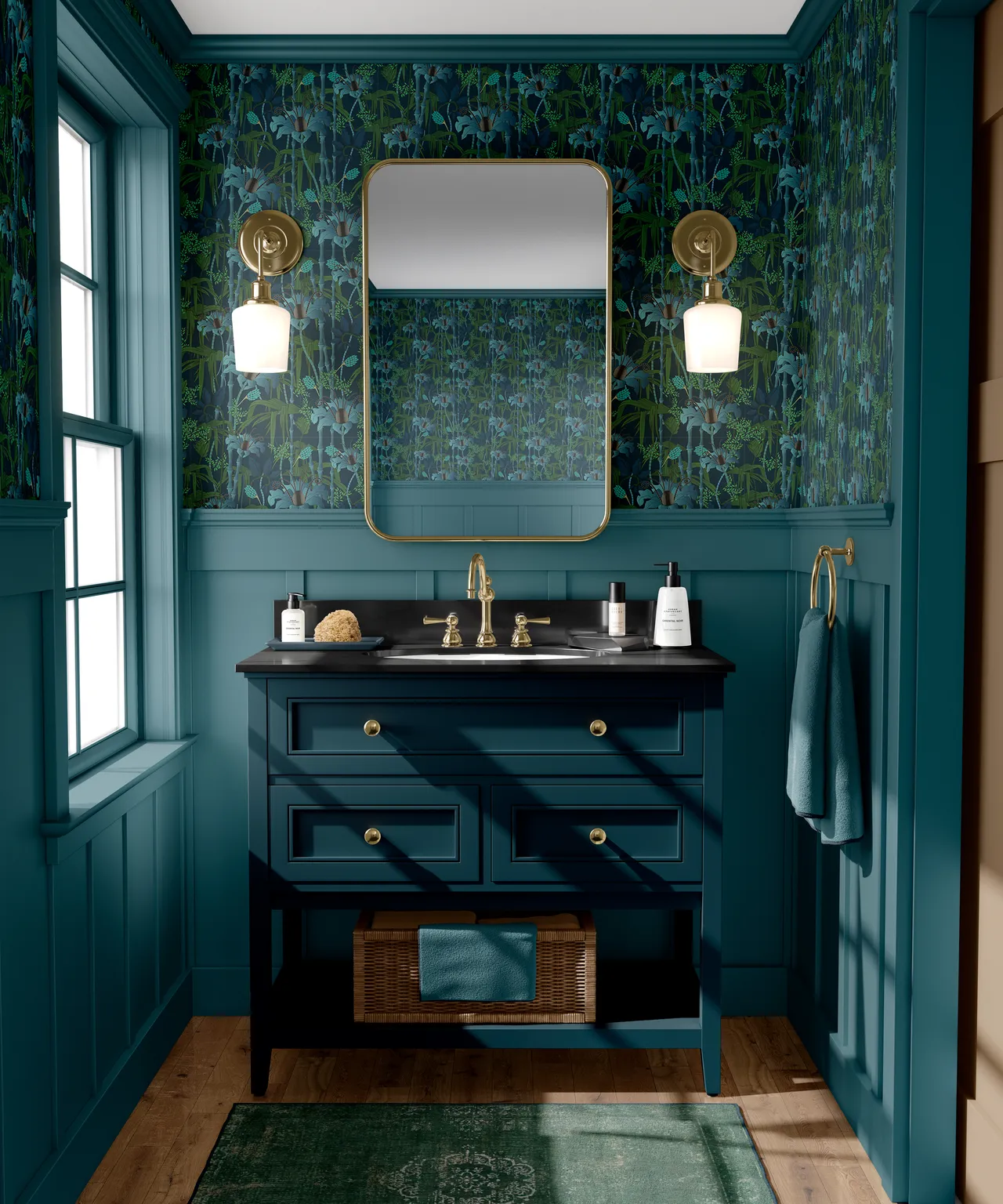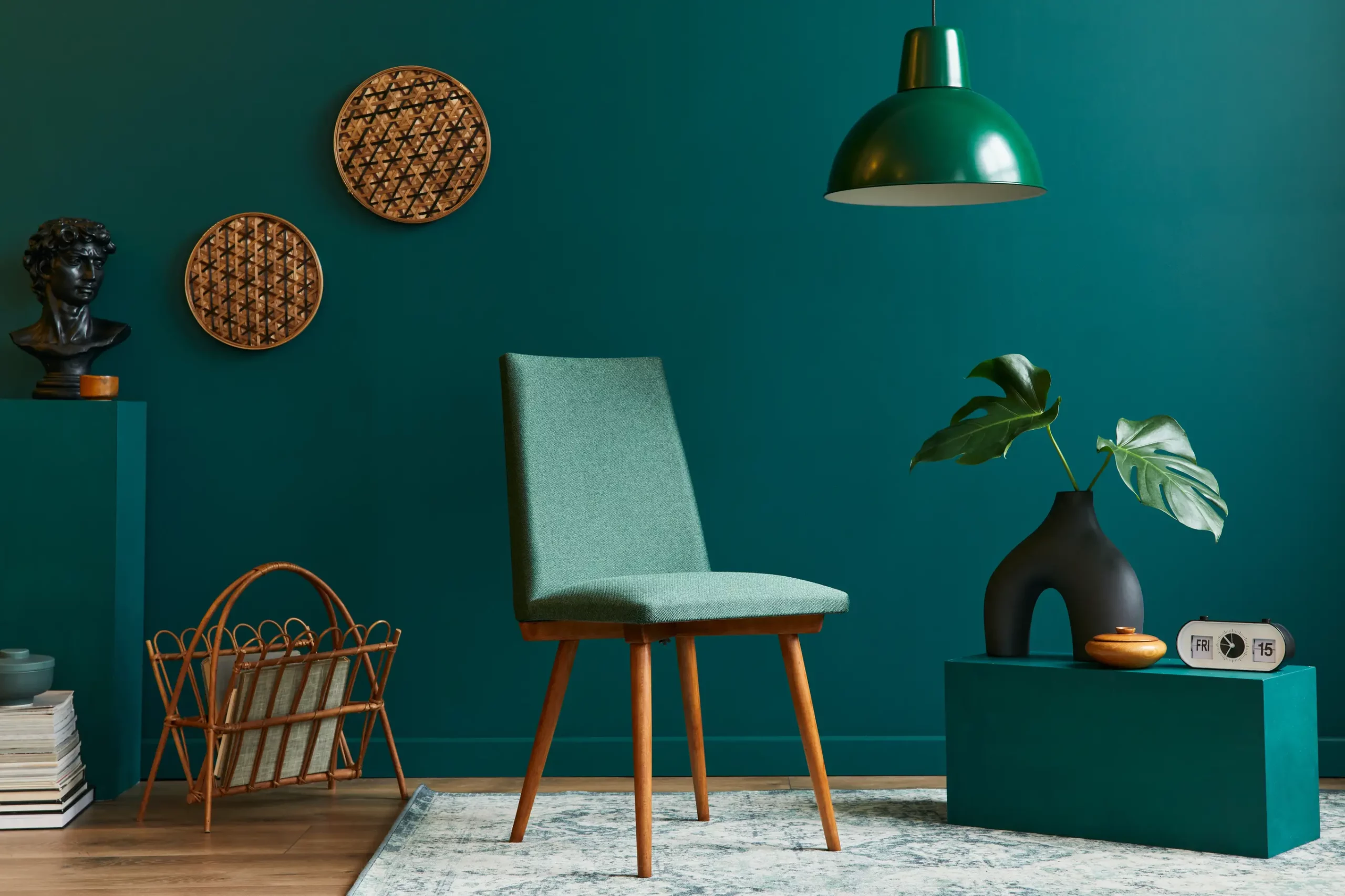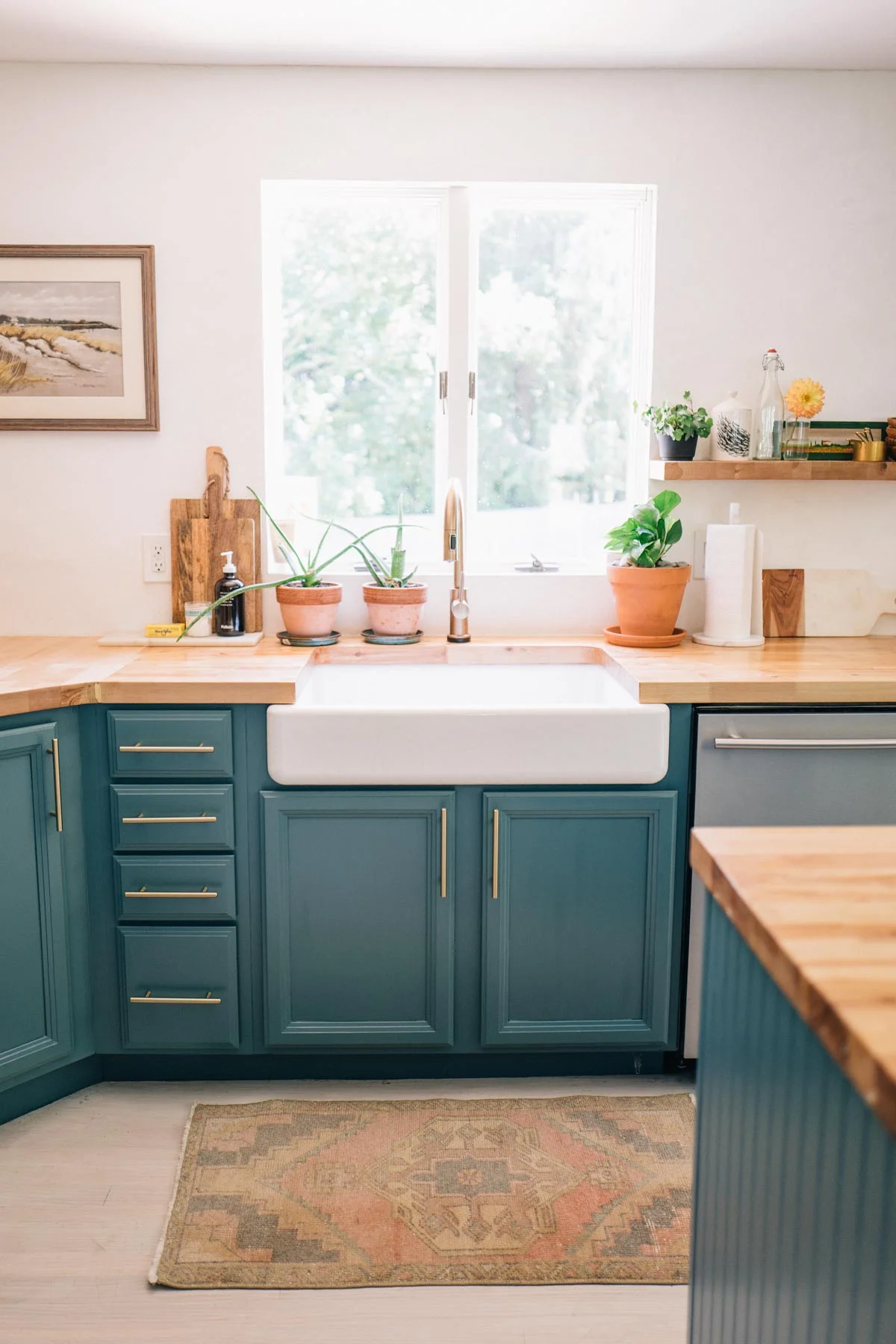Teal Reveal: What Color is Teal in Interior Design?
05:37Teal, a captivating color that dances between blue and green, has emerged as a favorite in the world of home design and decor. In this exploration, we delve into the essence of teal – its rich, medium to deep blue-green hue, and how it distinguishes itself from similar colors like turquoise and aquamarine. We’ll answer the question “What color is teal?” as well as uncover the varied shades of teal and its versatile use in different home decor styles and themes, revealing why this color has become a staple in contemporary interior design.
Defining What Color is Teal
Teal is a color that beautifully blends the calming qualities of blue with the refreshing essence of green, resulting in a hue that’s both soothing and vibrant.
In technical terms, teal resides somewhere between a medium and deep blue-green. It’s like the color of the deep sea captured in a single glance. When we talk about the specific hues of teal, there’s a range of shades to choose from.
The uniqueness of teal lies in its versatility. Unlike turquoise, which leans more towards blue, or aquamarine, which leans closer to green, teal strikes a perfect balance between the two. This equilibrium is what gives teal its distinct identity.

Variations of Teal
When it comes to the world of teal, there’s a shade for every mood and setting.
Let’s start with light teal. This lighter version of teal carries a breath of freshness, perfect for creating a tranquil and airy ambiance. It’s like a gentle whisper of color, subtle yet impactful, ideal for spaces where you seek calmness and clarity.
As we move deeper into the spectrum, we encounter the classic teal. This is the hue most of us think of when we hear ‘teal’ – a balanced, rich blend of blue and green. This shade is a fantastic choice for adding a touch of sophistication and depth to a room without overwhelming it.
Then, there’s dark teal. It’s a bolder, more dramatic hue, exuding elegance and strength. Dark teal makes a statement and is perfect for creating a focal point in a room, be it an accent wall or a piece of statement furniture.

Creating these different shades of teal all comes down to mixing varying amounts of blue and green. Add more blue, and the teal becomes cooler, perfect for a modern, sleek look. More green brings warmth, evoking a more natural, earthy feel. The beauty of teal lies in this flexibility – it can transform a space depending on which shade you choose.
You're reading Teal Reveal: What Color is Teal in Interior Design?, originally posted on Decoist. If you enjoyed this post, be sure to follow Decoist on Twitter, Facebook and Pinterest.
Posted By : June Steele

0 comments